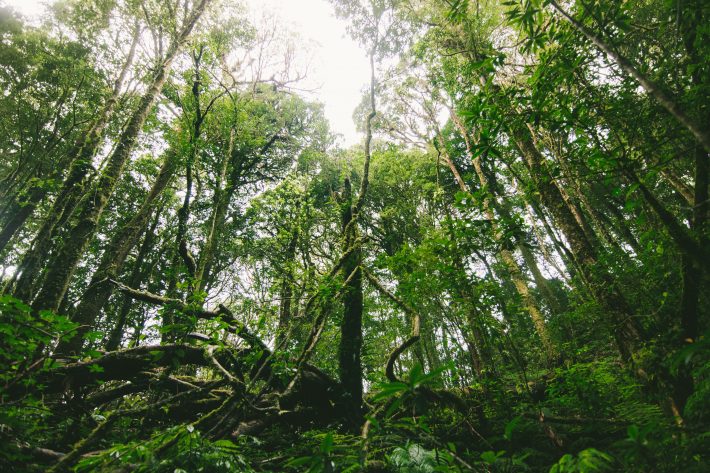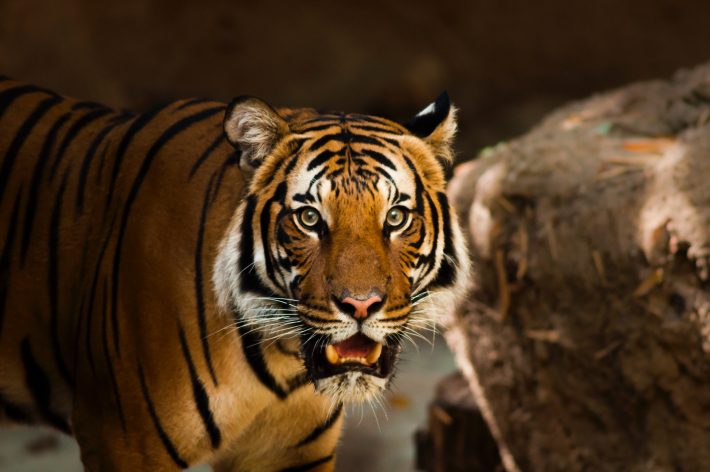International Biodiversity Day: A Case for Conservation Optimism
On the UN International Day for Biodiversity, Julia Migné from Conservation Optimism gives us reasons to stay hopeful about the restoration of biodiversity.

As a journalism student, I used to find reading the news daily an incredibly depressing task. Having a background in conservation, I was saddened to see that deforestation, species’ extinction and a whole cloud of doom and gloom seemed to be the only allowed angle to report on the environment.
After almost two years working at Chester Zoo and sharing their great conservation stories, I decided to take an extra step towards solutions-based science communication by becoming the Outreach Coordinator for Conservation Optimism.
The recent publication of the IPBES Global Assessment Report on Biodiversity and Ecosystem Services is an important reminder of the importance of framing conservation news in a constructive way. The report made waves worldwide with headlines announcing that a million species were now at risk of extinction.
This gloomy state of affairs quickly spread reminding people of the fragility of the natural world and the threats that we as human beings are imposing on it. Calling attention to the direness of the situation is important but it is crucial to accompany this message with a call to action to avoid leaving people in a state of complete hopelessness.
Calling attention to the direness of the situation is important but it is crucial to accompany this message with a call to action to avoid leaving people in a state of complete hopelessness.
Stories of Hope
Optimistic voices have emerged since the news came out highlighting the fact that we can all do our bit to make the world a better place, be it by changing how we shop or eat for example. Scientists from a range of countries take to social media every single day to share their optimistic stories using the hashtag #ConservationOptimism.
Those shared stories play a crucial role in making sure that the positive side of conservation is also easily accessible for people to stumble upon. This International Day for Biological Diversity, let’s put a light on the amazing successes that are happening in the conservation sector and celebrate the scientists and organisations behind those successes.
From the creation of national parks and reserves to the rediscovery of species believed to be extinct, there is a lot of optimism to share. Just looking back at this weekend, a damaged shell reef secured protected status in Scotland while rare tiger cub sightings were reported in India for the first time in years.
If we zoom in from the big picture, a mosaic appears. Amongst the stories of loss we start noticing that there are also inspiring stories of regeneration and positive change. I strongly believe that these stories are the key to securing our planet’s future and we need to learn from them, replicate them and thereby build a world in which nature and people can coexist.

Optimism in Technology
Those values are shared by Key Conservation, a mobile app which provides a platform that empowers the individual’s ability to make a difference. Designed by wildlife biologists, Key is a place where conservationists can come to find real-time global assistance when there are gaps in their traditional support. The app acts as a bridge between local organisations and the public who can see in real-time what they can do to help, be it by offering their skills or by donating money.
This union between conservation and technology is another source of optimism for me. It shows the power of thinking outside the box and bringing different disciplines together to solve problems. By working together, the Key team believes that we can find solutions to some of the biggest challenges faced by biodiversity around the globe.
Today I hope we can all celebrate International Day for Biological Diversity by sharing our strengths with the world and by putting a spotlight on all the great work that is being conducted to make sure that those million species do not get extinct!
Like what we stand for?
Support our mission and help develop the next generation of ecologists by donating to the British Ecological Society.